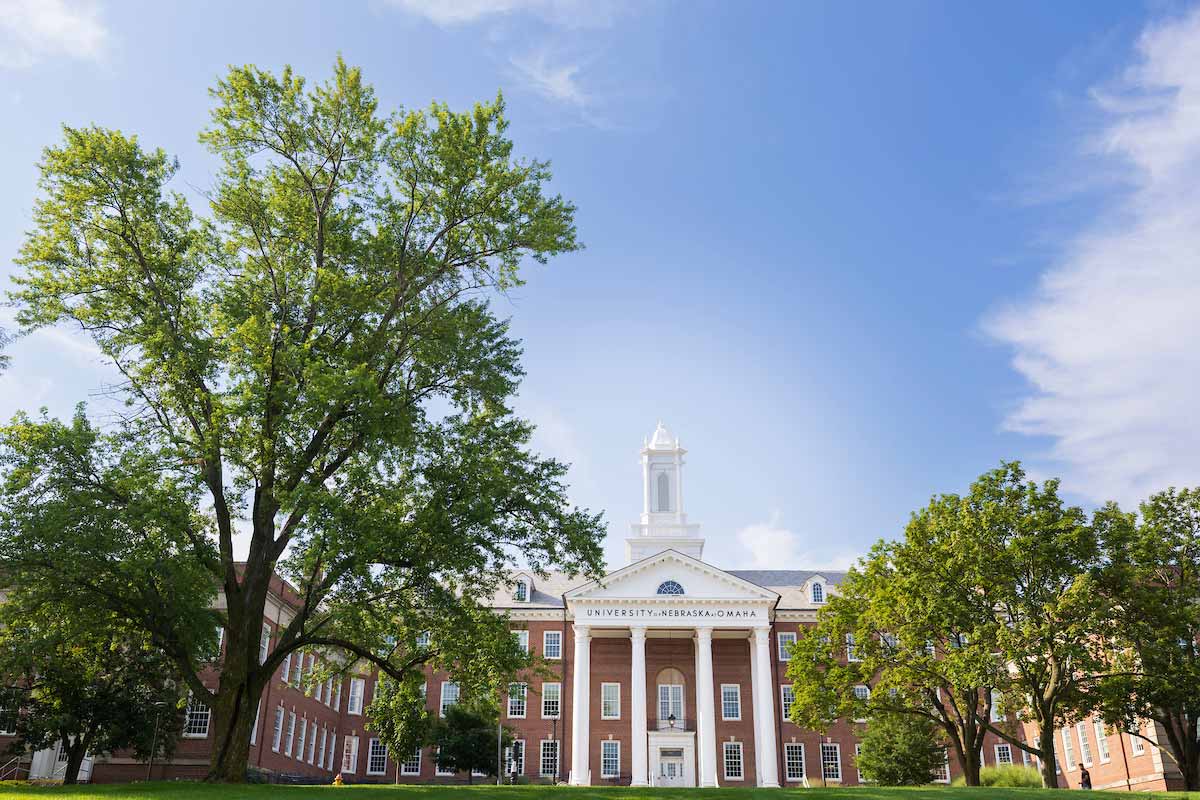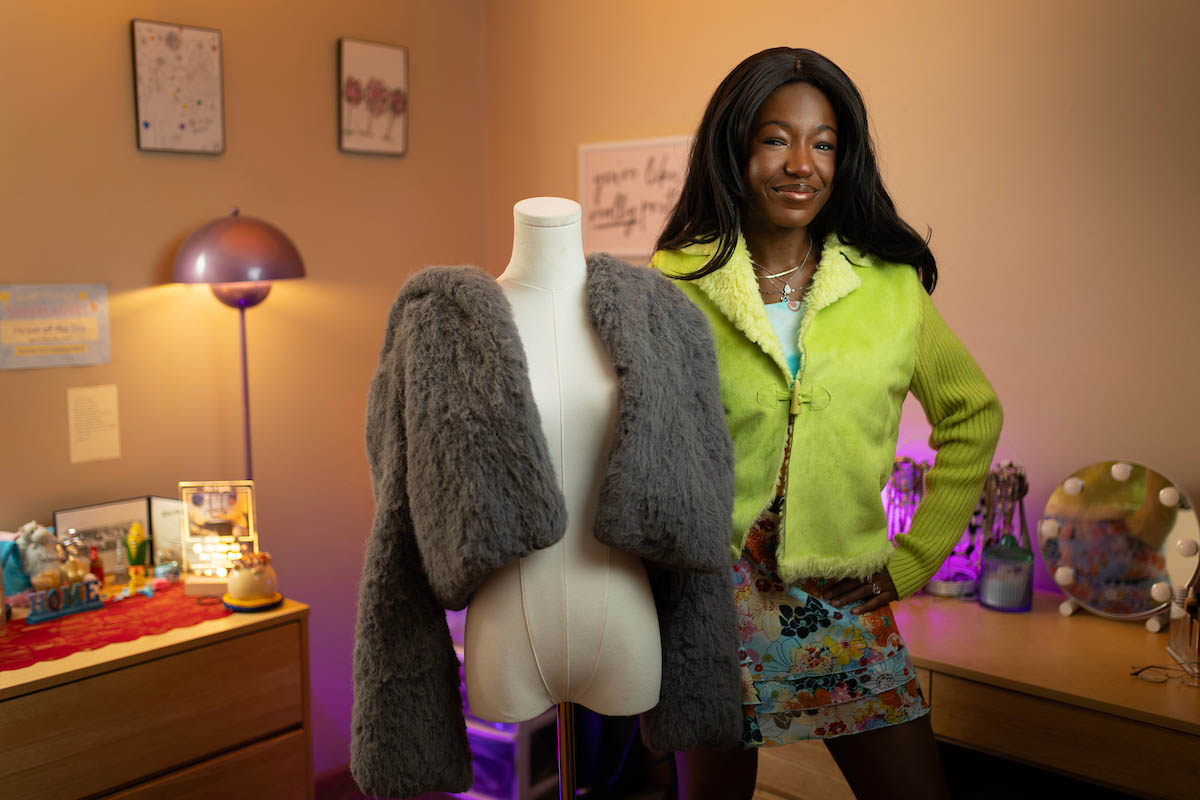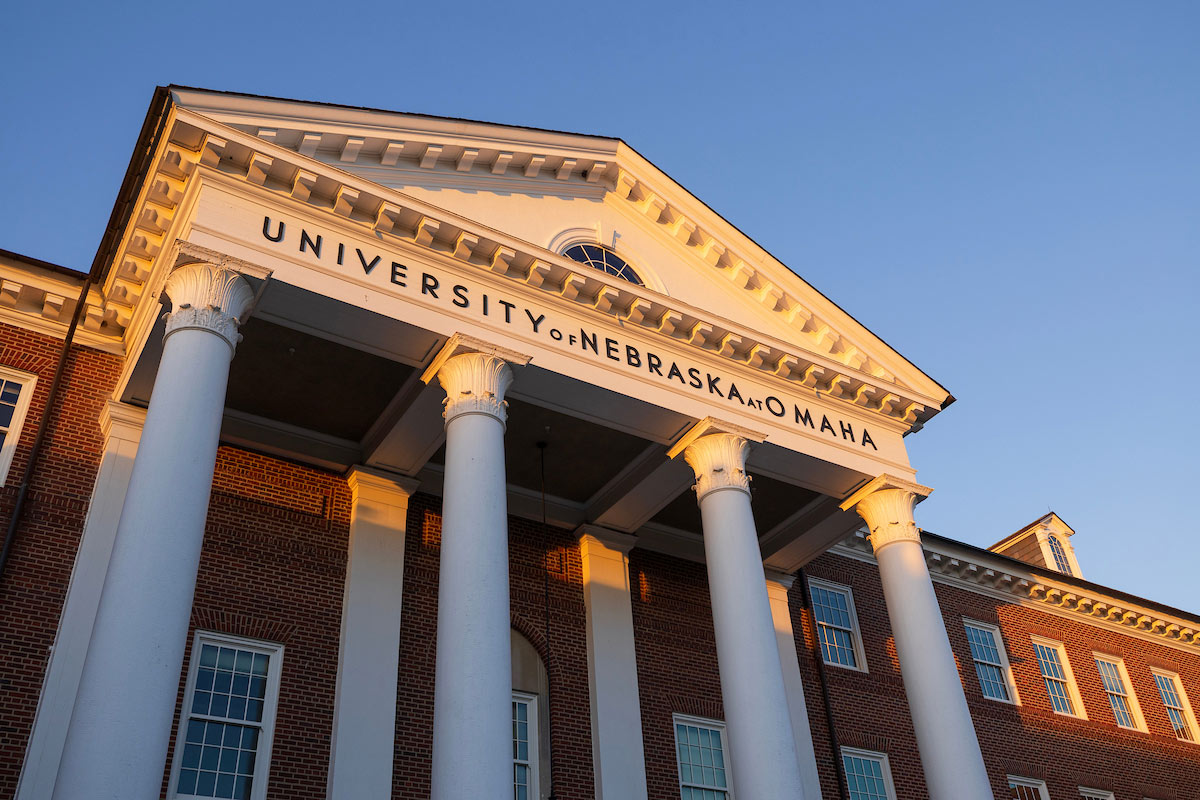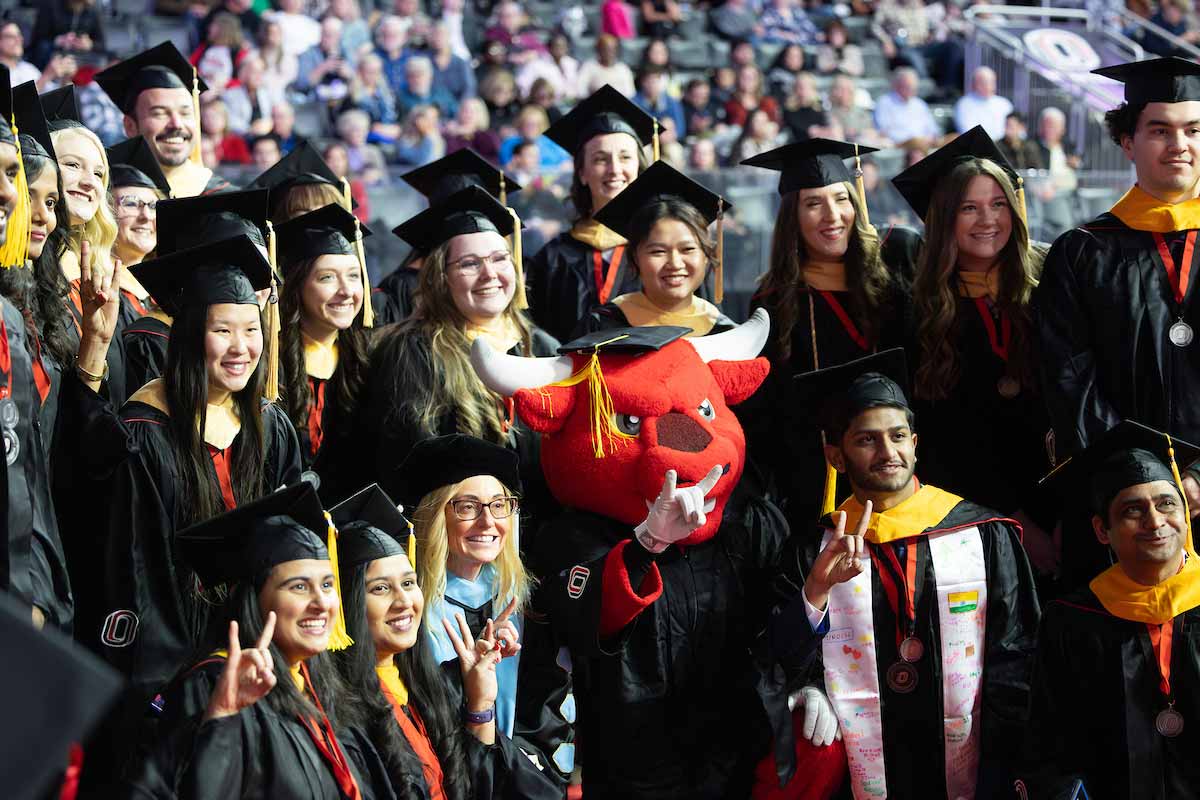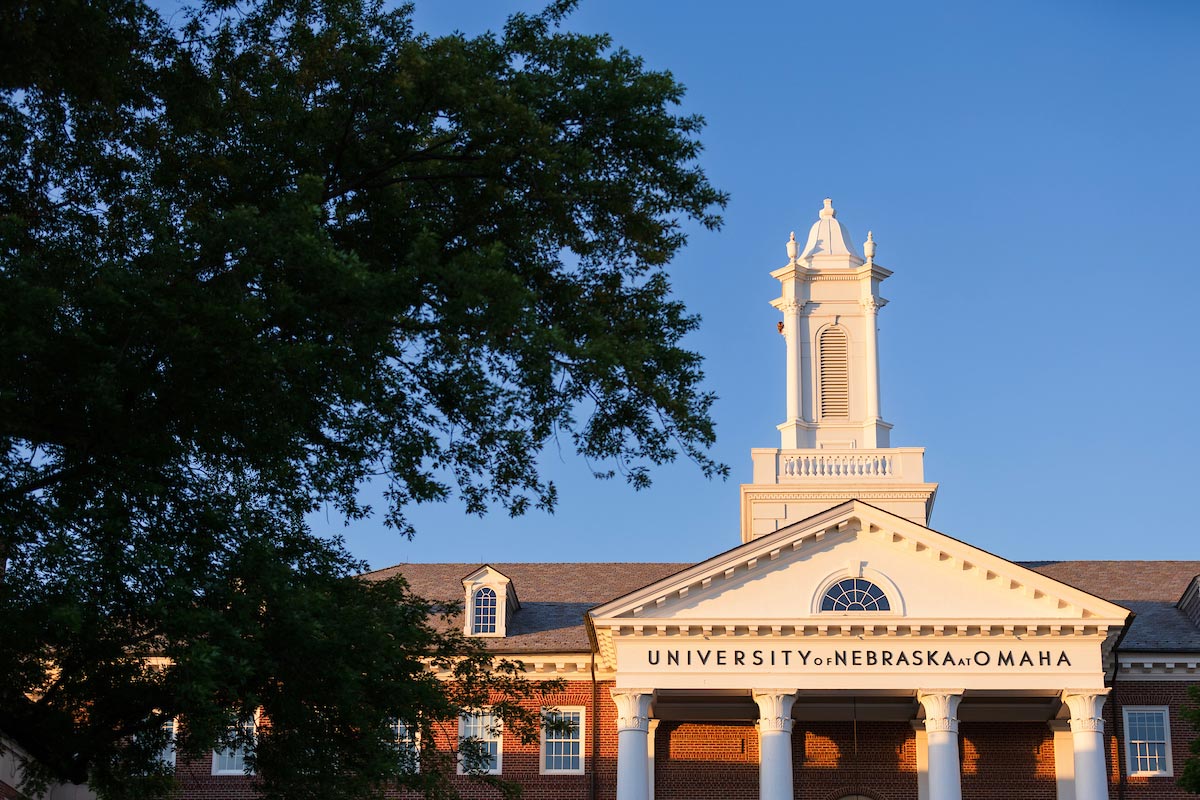Lydia Okuku fell in love with vintage fashion in high school. But when she came to college, she made it her career.
At the University of Nebraska at Omaha (UNO), Okuku has transformed her dorm room into a working space for Crazy Unicorn, her vintage clothing and upcycling brand.
As a UNO student, Okuku found herself surrounded by people with vastly different styles, cultures and perspectives, encouraged her to lean into her own sense of expression and experiment more boldly with clothing.
“Seeing all these different perspectives and the way that people dress—it really just made me want to express myself in my own way,” she said.
On campus, Okuku put together outfits in the Y2K style with its vibrant colors and textures. She looked at her walks to class as her personal runway.
“I wanted to be a fashionista,” she said. “And since I have to go across campus, then why not have fun with it?”
The sociology major’s 10-minute walks from Dodge Campus Housing to the Arts and Science Hall drew looks, and plenty of compliments and questions.
“People would ask me about where I found my clothes,” she said. “It made me realize that I wanted to be the person who sourced it.
Those conversations planted the seed for what eventually become Crazy Unicorn. She loved thrift shopping and looked to her favorite shops in Kansas City, Missouri, where she noticed how they made vintage fashion both accessible and trendy. She realized she could create something similar in Omaha.
Crazy Unicorn officially launched in 2024, offering colorful, Y2K-inspired pieces that stood in complete contrast to the neutral tones that Okuku saw dominating much of the shops and the people around her. The name, unique and eye catching, came from an unlikely source: a randomly generated username from Kahoot, an online education platform.
“I’ve had it since high school, and it became my luck charm,” she said. “I always get the best recognition with Crazy Unicorn.”
The aesthetic behind the brand is bold, drawing inspiration from early-2000s pop culture and her own Pinterest board. She’s particularly drawn to bright colors and playful femininity—elements she says are often missing from today’s fashion spaces that favors minimalism.
She also looks to her Cameroonian heritage in shaping her style, including vibrant colors and patterns. “You could never have a dull adult dress,” she said. “That’s definitely transferred into my own style.”
“Embracing youth, femininity, and colors—that’s really what I feel like is needed,” she said. “Everything feels so mundane otherwise.”
Crazy Unicorn made its debut at Benson First Friday, a gallery walk in Omaha’s most eclectic neighborhood where Okuku found an immediate connection with its creative energy. Along with selling online, Bensen First Friday has been by far one of her best outlets to sell clothes, with more opportunities to come.
Much of the work happens in her dorm, where she even taps her roommate to help her make content. Scrolling down Crazy Unicorn’s social media pages, the dorm is as much a feature as the clothes.
Alongside what you’d imagine in a dorm, like a desk and a bed, she keeps a sewing machine, mannequins, and clothing racks. And like her clothes, the room décor confidently showcases a Y2K aesthetic.
Her business is part of her college life, like her classes and campus life, but there have been challenges as she manages classwork, sources clothes, and books sales events.
“My schedule is always full,” she said. “I rely on planners and several alarms on my phone to keep everything moving.”
Some pieces are sold as-is, while others are upcycled through sewing and reconstruction. Okuku often takes apart garments to reuse fabric, adding texture or something else unexpected.
Her customer, she said, is someone who wants to stand out. “You are the model,” she said. “You are the person on that runway.”
Undeniably, her sociology major has shaped how she envisions the future of Crazy Unicorn. She can’t help but examine how her studies of labor and organizational structures have influenced how she wants to build her business.
Looking ahead, Okuku looks to open a storefront upon graduation. And she already knows the exact place, in Omaha’s Old Market, where the brand will evolve. She also looks to use the Crazy Unicorn brand to build community, developing a social club, called Whimsy, designed for young people to connect around shared interests.
This spring, Crazy Unicorn will celebrate its second anniversary, and Okuku says the growth has been both exciting and wonderfully challenging.
“Crazy Unicorn is about having fun with life,” shea said. “This is for people who can be bold and confident. As long as they know they look good, they’re perfectly fine.”
